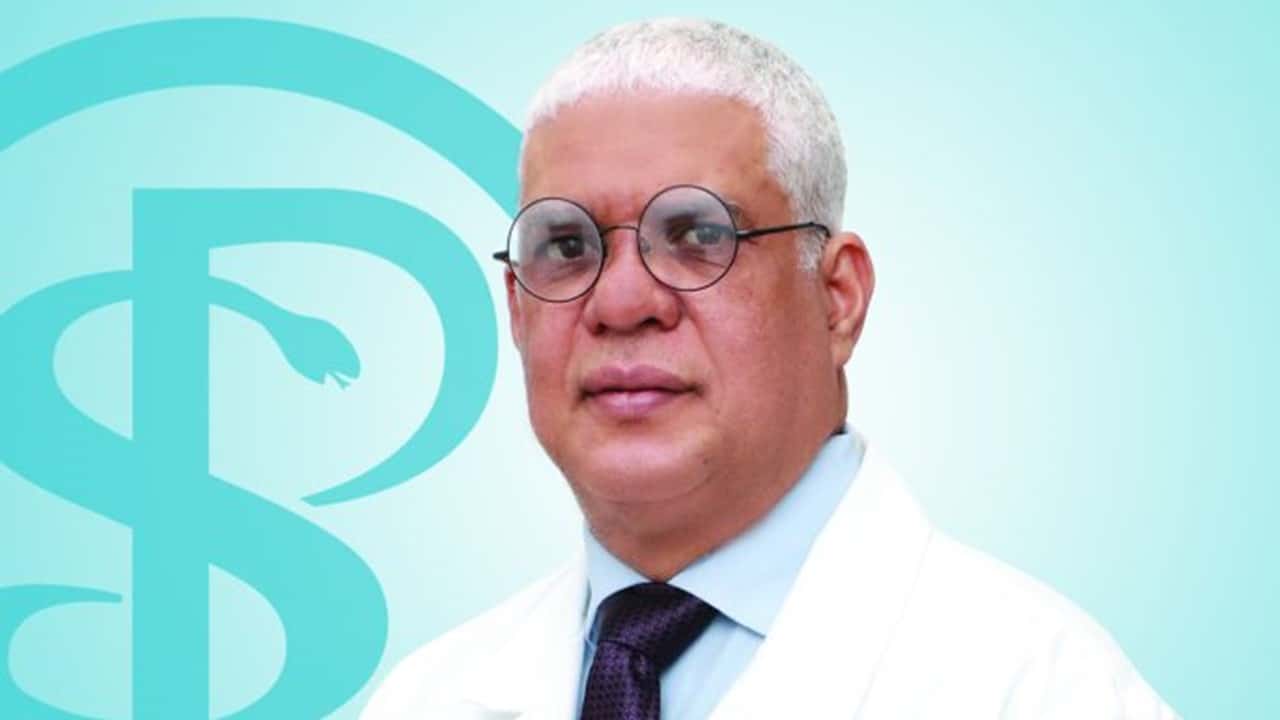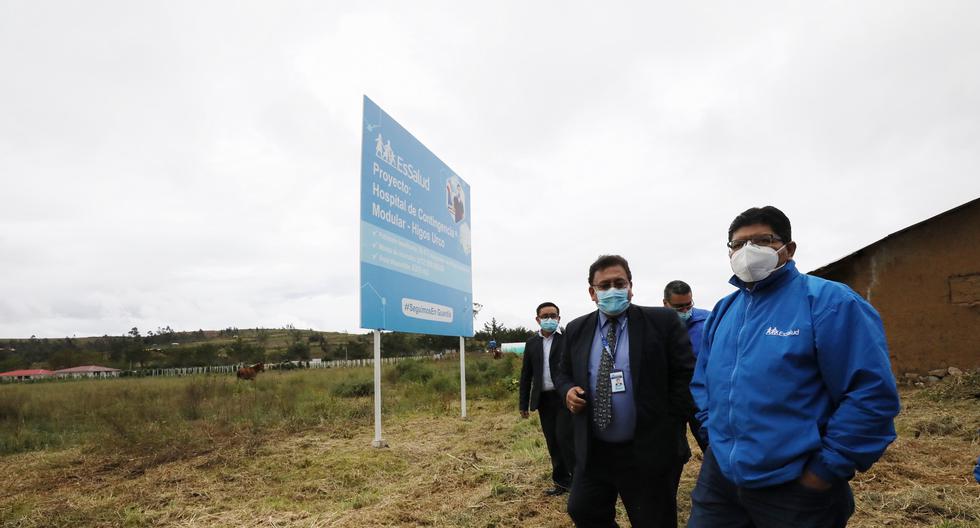Although at first it was believed that the effects of the Sars-Cov-2 virus would only be at the pulmonary level and without long-term consequences, various studies have shown that the COVID-19 has left aftermath cardiac, renal, neurological and even psychiatric, taking as a measurement framework a period after three months after having overcome the infection.
“The COVID-19 it has the capacity to affect all patients, with or without symptoms, with or without known cardiac pathologies and many of the vital organs such as heart, brain and lung”, explained to Diario Libre the cardiologist and internist Jimmy Gomez.
The most frequent symptoms in patients with heart disease consist of: palpitations, fatigue, tiredness, headache, chest pain, dizziness and edema of the lower limbs.
“We have seen a notable increase in symptoms related to cardiovascular pathologies since the start of the pandemic; most notably, the palpitations, chest pain, and “unexplained” generalized weakness, as reported by patients in the office,” he commented.
In the particular case of the myocarditisaffection of the heart muscle, on this occasion, by a virus that produces inflammation and dysfunction of the heart As a bombshell, Dr. Gómez clarifies that it does not occur in all patients affected by Covid, but the rates have increased.
“The known global incidence is 100 per 100,000 inhabitants when prior to COVID-19 it was only one to 10 per 100,000 inhabitants”confirmed the specialist.
This inflammation can go unnoticed in some patients, hence the importance of the patient being evaluated by a specialist cardiologist, because this condition has implications of interest in the short and long term, and in very severe cases, even death.
thrombi or clots
The aftermath of the coronavirus not only affect the heart.
“At the level of the circulatory system (veins and arteries), the affectation by COVID-19 it can occur through the formation of thrombi or “clots”, especially in pregnant patients, overweight, obese patients and those with a history of venous insufficiency (varicose veins in the legs) requiring immediate medical management, “said Gómez.
“Thrombus (clots) frequently occur not only in the leg, but also in other organs of interest such as the lung, heart Y brain. There are several records worldwide where the presence of thrombosis ranges between 20-30% of patients”, added the cardiologist who works at Cedimat and the Modern Medical Center.

The doctor explained that the presence of clots is equivalent to a thrombosis and she, in turn, to a “localized heart attack” in the affected area, which leads to lack of irrigation, lack of oxygen that feeds the area and dysfunction of the affected area.
Covid is a prothrombotic and anti-inflammatory condition that can affect the circulatory, metabolic, neurological and skeletal muscle systems.
“As a result of this global affectation, it is evident in many patients not only a lack of control in their blood pressure levels but also an imbalance in their glycemia, lipids, thyroid and even liver figures. The symptoms that occur or persist with the condition have allowed us to diagnose underlying medical conditions that the patients were unaware of,” said the interviewee.
persistent covid
The persistent COVID It was defined for the first time at the end of December 2021 and published in the prestigious medical journal Lancet.
It is defined as the persistence of symptoms that cannot be explained by another diagnosis for at least two months. Patients at the time of questioning refer infection confirmed or not by COVID-19 at least 3 months prior.
The patients with the greatest predisposition to suffer from it are those who suffer from underlying diseases such as hypertension, diabetes and bronchial asthma, however, “if this pandemic has taught us anything, it is that the presentation of the disease is completely unpredictable in each patient” .
58% of the patients studied presented fatigue as the main symptom of persistent COVID or “Long COVID”, as it is known in English.
The treatment of COVID is a multidisciplinary. The specialties with a leading role during the pandemic are: infectology, pulmonology, cardiology, neurology and critical medicine. To them are added, not least, nephrology, gynecology, pediatrics, peripheral vascular, gastroenterology, psychiatry, physiatry and psychology.
brain damage
“It has been shown that COVID can leave chronic damage to the nervous system. Some patients are going to present neurodegenerative disorders and symptoms of dementia, multiple sclerosis, attention and concentration disorders”, with this phrase he began the conversation with the neurologist Guillermo Jiménez.
“Fatigue is the most common symptom, even more than headache or fever,” said the former president of the Dominican Society of Neurology and Neurosurgery.
“Patients who were in Intensive Care (ICU) or connected to a ventilator are the most likely to develop late symptoms of neuropathies, muscle involvement, nerve plexus involvement. They may also present delirium, a confusion disorder, where there may be hallucinations, especially patients who have been connected to a ventilator for a long time, “said the doctor.
The virus can affect not only the central nervous system, not only the brain and spinal cord, it can also affect the nerves (peripheral system).

According to the doctor’s experience, encephalopathies can also arise, an infectious process that affects the brainHence, some patients may have cerebral ischemia (involvement of the cerebral blood vessels) over time, may present pictures of a CVA (brain stroke), seizures and thromboembolism, metabolic alterations and immune-mediated mechanisms.
Jiménez says that he has received patients with attention and concentration problems and altered mood after having suffered from Covid. In this case, they are handled by a psychologist and a psychiatrist. Also patients with affections of the peripheral nervous system (neuropathies), increased migraine attacks and increased seizures in cases of epileptic patients.
“We have had cases of patients who feel down, they feel sad, without encouragement, but in most cases they have been temporary situations,” he admitted.
The also university professor concluded the interview by saying that “there are patients who, after suffering from Covid, have spent weeks suffering from insomnia, which has the consequence that they may have problems with concentration, attention and even recent memory, problems with irritability and behavior, all this may be secondary to Covid itself.”
Still learning from COVID
“Covid is a disease that we are still learning about today. Not enough time has passed for us to know the long-term effects of this pathology, however, we do know the long-term consequences of patients with severe heart attacks in heartlung and brain where depending on the extent of these, they can partially or completely incapacitate the patient. Each case is an individual one,” stated cardiologist Jeimy Gómez.
For his part, Dr. Jiménez agrees with Gómez.
“We are still learning. Every day a new article comes out, we see that some medicines we should no longer continue using them, we are learning as we go”, said the doctor with professional practice at the Plaza de la Salud General Hospital and Hospiten.


















